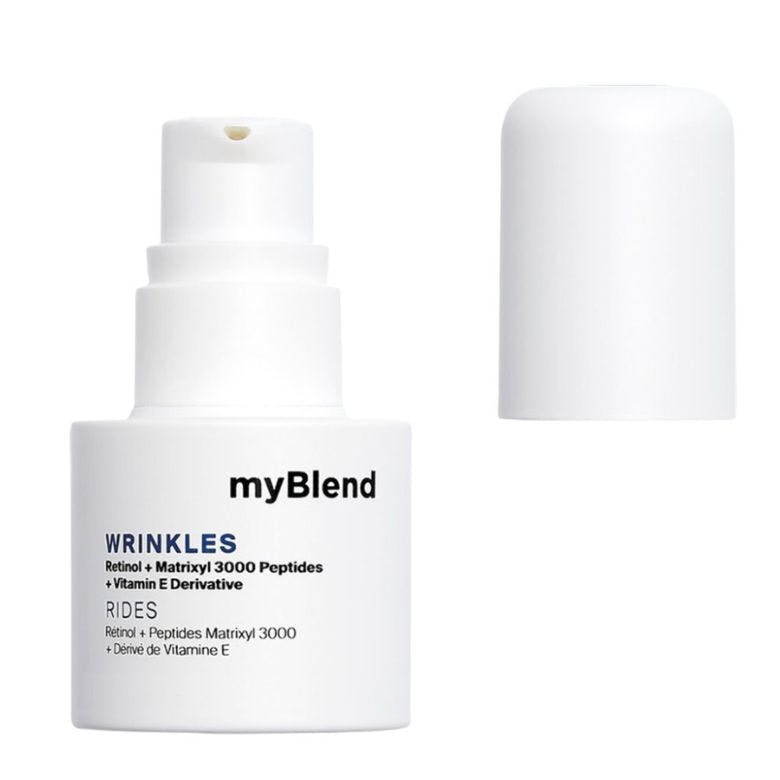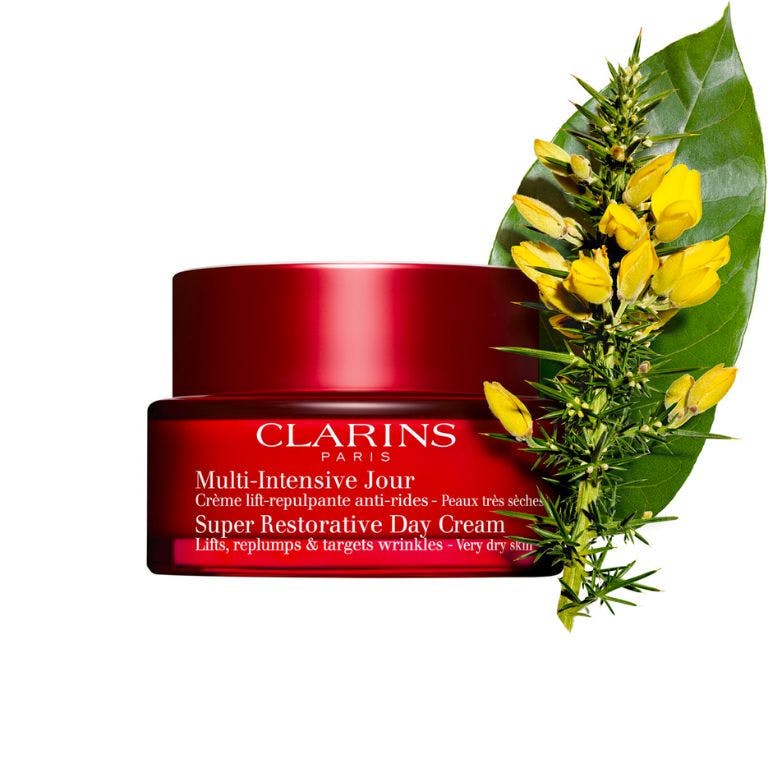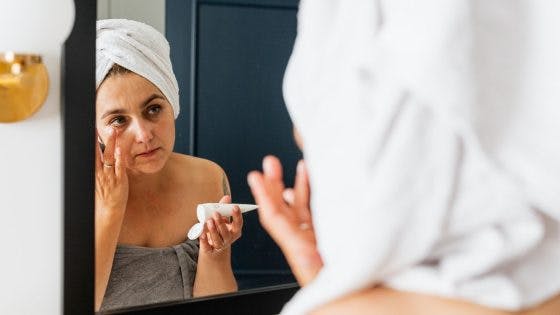Everything You Need To Know About Retinol Skincare
8 minutes read
If you’re on the hunt for smoother, more youthful-looking skin, adding retinol to your skincare routine might be just the trick. A powerhouse skincare ingredient, retinol’s main benefits include wrinkle reduction, acne prevention, and sun damage repair. Here, Beauty Daily speaks to Sharin Shafer, co-founder of Skinfluencer, to help you unlock the secrets behind achieving radiant skin, by breaking down the science, benefits, and rules of using retinol in your skincare routine.
Retinol in skincare at a glance
- Retinol is a vitamin A derivative that boosts cell turnover and collagen production
- Retinol offers a range of skincare benefits, from reducing wrinkles to preventing acne
- Using retinol in your skincare routine requires careful consideration and following strict guidelines.
What is retinol?
Retinol is a gold standard active, known in the science world as a retinoid. A derivative of vitamin A, “a fat-soluble vitamin, composed of various related organic compounds, including the retinoids – retinoic acid, retinal, and the most renowned of all – retinol,” explains Shafer.
Available in various strengths ranging from as low as 0.01 per cent all the way up to 1 per cent, when applied to the skin retinol is converted into retinoic acid, the most potent retinoid of all. “It’s naturally occurring in the body, making this the only bioavailable retinoid,” explains Shafer. However, the potency of retinoic acid is diminished during conversion. So, while retinol may take a bit longer to produce results compared to prescription grade retinoic acid, it is still very effective when used consistently,” adds Shafer.
Retinol skincare benefits
So why is retinol considered such a game-changer for the skin? Here are a range of benefits:
- Reduces wrinkles and fine lines: Retinol is renowned for its anti-ageing prowess, helping to smooth out fine lines and wrinkles over time.
- Improves skin texture: If you’re after smoother, more even skin, retinol can help refine your skin’s texture.
- Even skin tone: Uneven skin tone and dark spots don’t stand a chance against retinol’s brightening properties.
- Treats acne: It’s not just for ageing concerns—retinol can also help combat acne by unclogging pores and reducing inflammation.
- Boosts skin cell turnover: This means fresher, younger-looking skin as it encourages the shedding of dead skin cells.
- Enhances hydration: Retinol can improve your skin’s ability to hold moisture, leaving it plump and hydrated.
- Minimises pore size: Smaller looking pores are often a side effect of regular retinol use.
- Combats sun damage: It can help repair sun-damaged skin, though sunscreen still remains your first line of defence.
- Prevents premature ageing: Retinol’s ability to boost collagen production and cell turnover can help prevent premature ageing.
How important is retinol in a skincare routine?
Retinol’s importance depends on your skin type and concerns, as although it’s a powerful ingredient, it’s not one-size-fits-all active. Depending on your skin type and goals, a dermatologist or skincare professional can help you tailor your retinol regime.
When starting to use retinol, it’s crucial to consider the order of application within your skincare routine.
9 rules to be aware of when using retinol
Using retinol effectively and safely requires following some rules. Here are nine important ones to keep in mind:
- Start slowly: Introduce retinol gradually into your routine to avoid irritation.
- Impact is not immediate: Don’t expect instant results; retinol takes time to work its magic.
- Use sunscreen: Daily sun protection is non-negotiable to prevent skin damage.
- Avoid during pregnancy: Consult your doctor before using retinol during pregnancy.
- Skip if irritated: If your skin becomes overly irritated, take a break from retinol.
- Nighttime application: Apply retinol at night to maximise its benefits.
- Moisturise: Follow with a good moisturiser to combat dryness.
- Don’t combine it with vitamin C: Combining both vitamin C and retinol can cause sensitivity. Use retinol at night and vitamin C in the mornings.
- Limit the use of other skincare actives: Be cautious with other active ingredients, such as AHA and BHA exfoliants, in your routine to avoid over sensitising your skin.
Curious about retinol alternatives?
Read: Do Plant Based Retinol Alternatives Really Work? Experts Weigh In.
Types of retinol skincare products
There are various retinol products to choose from, each catering to different preferences and needs.
Retinol serums
Retinol serums contain vitamin A derivative retinol, which works by stimulating skin cell turnover, boosting collagen production, unclogging pores, fading dark spots, reducing wrinkles, and improving skin texture. They often contain ‘buffer’ ingredients, such as ceramides, to make the formula gentler on the skin and limit irritation.

Try: myBlend Superserum Wrinkles: The Anti-Wrinkle Serum, £70, a powerful hybrid which combines retinol with firming peptides and anti-oxidant rich vitamin E, to treat the signs of ageing.
Read: Retinol Serums: Which Are The Best & How Do You Use Them?
Retinol moisturisers
Retinol moisturisers combine the benefits of retinol with the hydration of a moisturiser. They offer an effective way to address various skincare concerns, including fine lines, wrinkles, and uneven skin tone, while keeping the skin hydrated at the same time. However, despite the added hydration and protection moisturisers offer, they should still be used cautiously to avoid potential skin sensitivity and sun sensitivity.
Retinol eye creams
A retinol eye cream work wonders on fine lines, wrinkles, and dark circles – almost like a secret weapon for a smoother, brighter eye area. Just remember to use it sparingly – and don’t skip your SPF as the delicate skin around your eye area is super sensitive.
Read: Retinol Eye Cream Uses, Benefits and Drawbacks
Retinol for beginners
For those new to retinol, keep it gentle and start with a lower percentage, since retinol can cause dryness and sensitivity if overused. Gradually work your way up to stronger concentrations as your skin adjusts.
- Start with your selected retinol serum or cream.
- Apply it once or twice a week for a minimum of two weeks.
- After the initial two weeks, switch to using it every other night.
- If your skin feels comfortable with this routine, you can progress to applying it every night.
This approach is designed to prevent retinization, also know as the ‘retinol uglies’, which involve:
- Temporary increased breakouts.
- Excessive shedding of skin.
- Irritation of the skin.
Shafer advises that this gradual approach should help your skin adjust to the retinol product and minimise the negative effects associated with its use.
If you are not quite ready to take the plunge – or prefer something gentler? Try Clarins Super Restorative range, which contains ‘nature’s retinol’, organic Harungana, a natural plant extract that tightens, plumps and smooths the skin without risking the sensitivity that can be caused by some retinol skincare products.
Retinol for mature skin
It’s never too late to incorporate retinol-based skincare products into your daily skincare routine. Thanks to its ability to boost collagen it makes for an ideal active to keep skin looking youthful for longer. Whatever your age, the main thing to consider when choosing your retinol products, is your skin type, for more on this keep reading.
Explore skincare advice for mature skin
Retinol skincare for dry skin
Dry skin requires special attention when introducing retinol, as initially it can cause further dryness, peeling and flakiness. Shafer recommends the ‘sandwich technique’. This is where you apply your moisturiser first, then your retinol, and top with another layer of moisturiser. By using retinol this way, you bolster the skin with enough nourishment and hydration to reduce the possibility of drying it out further.

Try: Clarins Super Restorative Day Cream for Very Dry Skin, £80, which contains sea lilly and organic harungana for the perfect combination of hydration and regeneration.
For more in-depth advice
- Dry Skin Creams That Dermatologists Recommend
- How To Care For Dry Skin
- How To Relieve Dry Skin On The Face
Retinol skincare for combination skin
When it comes to combination skin, the rules differ depending on whether you have a mix of dry and normal skin, or oily and normal skin.
“Those with more oil tend to have more robust skin – and can greatly benefit from retinols pore clearing capabilities,” says Shafer.
And while we wouldn’t recommend starting with the highest dose, or daily use, it’s likely you’ll tolerate retinol well. However, for those with normal to dry skin, it’s best to follow the same protocol as those with dry skin, and ‘sandwich’ your retinol at night between two layers of moisturiser. Alternatively, look for a retinol product labelled ‘gentle’ or ‘for sensitive skin’. These formulations typically contain lower concentrations of retinol and are less likely to cause excessive dryness or irritation, which can be a concern for dry skin types.
Read: What Is Combination Skin and How to Balance It
Retinol skincare for sun damage
For those dealing with the effects of sun damage, retinol can be a lifesaver. Retinol repairs sun damage by stimulating skin cell turnover, which sheds damaged skin cells and encourages the growth of healthier ones. It fades sunspots, evens skin tone, and promotes collagen production, reducing the appearance of fine lines and wrinkles caused by sun exposure. This process ultimately rejuvenates and restores sun-damaged skin.
It may take several months of consistent use to see the full extent of retinol’s transformative effect – so remember, patience is key, as is using the right doses and application methods for your skin type. Do that and you’ll be able to give your skin a youth-boost and achieve a radiant-looking complexion.
Read: How to Repair Sun Damaged Skin
Discover more skincare secrets
Everything You Need To Boost Your Collagen
What Is Hyaluronic Acid And Does It Really Work?
Here’s Why Niacinamide Deserves A Spot In Your Beauty Cupboard
Sign up for our newsletter
We will keep you in the loop for special offers, exclusive gifts and product news.

